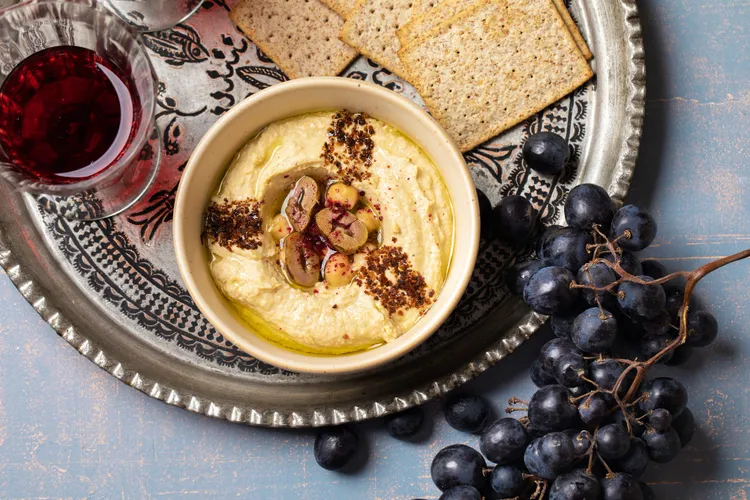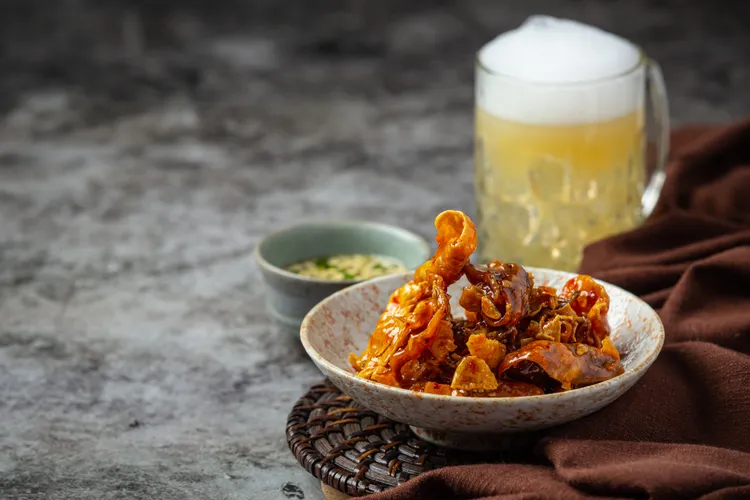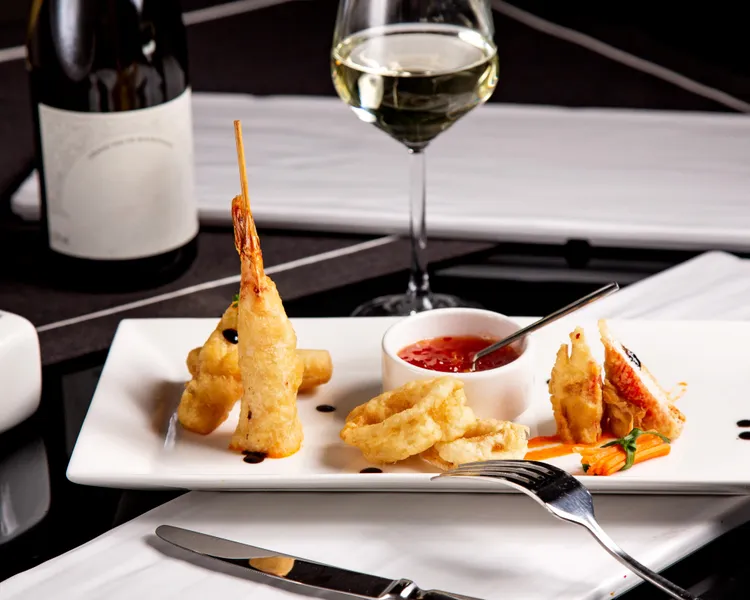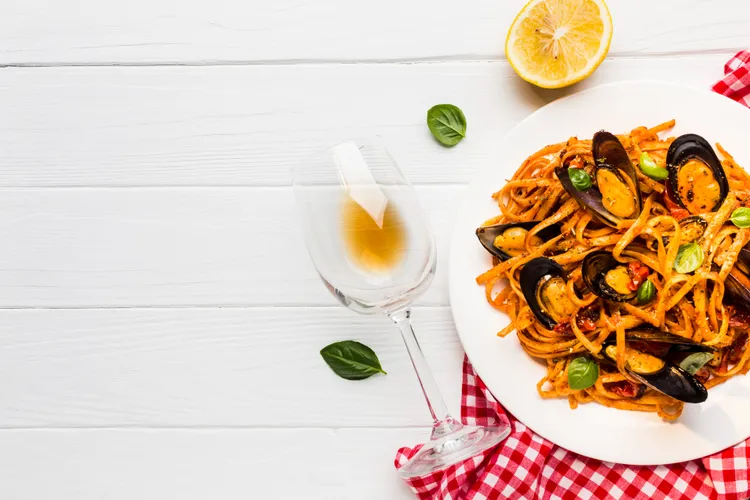Why Pleasure Matters When It Comes to What You Eat
When it comes to food, most conversations revolve around calories, macros, portion control, and nutritional value. We obsess over labels like "low-carb," "sugar-free," "keto-friendly," or "high-protein." But there's a fundamental element of eating that often gets overlooked in modern diet culture - pleasure. Let’s talk about why pleasure isn’t just a “nice bonus” when it comes to eating - but a core, biological, and psychological need that profoundly shapes our health, our habits, and our relationship with food.

The Forgotten Element in Nutrition: Pleasure
Many people have been taught to think of food as fuel, and nothing more. While it's true that food gives us energy, this clinical view ignores the rich, multi-dimensional experience of eating. Think about it: food is culture, identity, memory, emotion, and celebration.
You don’t just remember your grandmother’s soup because of its vitamin content. You remember the aroma, the warmth, the way it made you feel comforted and cared for. That’s pleasure - and it matters.
Pleasure in eating:
-
Encourages mindful, slower eating, which supports digestion and satiety.
-
Enhances satisfaction, reducing the likelihood of overeating.
-
Builds positive emotional associations with food, reducing shame and guilt.
-
Makes healthy eating more sustainable over the long term.
The Science: How Pleasure Impacts Eating Behavior
The body is wired to seek pleasure from food. When you eat something enjoyable, your brain releases dopamine, a neurotransmitter involved in reward and motivation. This isn't just some evolutionary quirk - it’s a survival mechanism.
Pleasure ensures that we keep eating and replenishing our energy. But it also plays a key role in satiety - the feeling of fullness and satisfaction.
Studies have shown that:
-
People who enjoy their meals are more likely to feel full with less food.
-
Those who restrict pleasurable foods often experience cravings and binge later.
-
Sensory satisfaction (flavor, texture, smell) significantly impacts eating habits and emotional wellbeing.
In one notable study, participants were given either a delicious, indulgent meal or a bland version with the same calories. Those who ate the pleasurable version reported feeling fuller and more satisfied - even though the nutritional content was identical.
Pleasure is not just indulgence. It’s biologically functional.
Pleasure vs. Overindulgence: Understanding the Balance
Critics often conflate “pleasurable eating” with gluttony. But pleasure doesn’t mean overeating or making poor health choices. In fact, the opposite is often true.
When we allow ourselves to enjoy food without guilt, we’re better able to listen to our body’s signals. We stop when we're full. We don’t chase satisfaction through quantity, because we've already achieved it through quality and mindfulness.
Overeating often stems from deprivation, not indulgence.
Here’s what pleasure-centered eating does not mean:
-
Eating cake for breakfast, lunch, and dinner.
-
Ignoring nutrition entirely.
-
Using food to numb emotions.
It does mean:
-
Savoring your meals.
-
Choosing foods that make you feel good physically and emotionally.
-
Letting go of shame around eating.
Pleasure Is the Key to Sustainable Healthy Eating
One of the biggest reasons diets fail is because they are miserable. They strip away joy. They focus only on restriction, willpower, and rigidity.
But what if your eating plan made you feel good - not just physically, but mentally and emotionally? What if food wasn’t a battleground, but a source of daily enjoyment?
Sustainable healthy eating happens when:
-
You actually like the food you’re eating.
-
You look forward to meals.
-
You feel empowered, not punished.
-
You don’t feel the need to “cheat” because you’re not depriving yourself.
Pleasure helps you stay consistent, and consistency is the true cornerstone of long-term health.
Cultural and Emotional Connection to Food
Food is not just about nutrients. It’s about connection - to others, to traditions, to our own identity. When you eat your favorite childhood dish, or share a home-cooked meal with friends, that emotional nourishment matters just as much as the vitamins.
Pleasure in food is deeply tied to:
-
Cultural expression - Think Italian pasta, Indian curries, Japanese sushi.
-
Celebration - Birthdays, holidays, weddings.
-
Comfort - The dishes you crave when you're sick, sad, or stressed.
Rejecting pleasure in food often means rejecting these experiences, too. That’s a heavy price to pay.
Mindful Eating: The Gateway to Pleasure
You don’t have to eat croissants in Paris or gourmet tasting menus to enjoy your food. You just have to be present.
Mindful eating is the practice of slowing down, tuning into your senses, and appreciating each bite. It invites you to:
-
Notice flavors, textures, and aromas.
-
Pay attention to how food makes you feel.
-
Recognize fullness and satisfaction.
When you’re distracted - eating in front of a screen, rushing through a meal - you miss the experience. Mindfulness brings the pleasure back.
Try this: Take your next meal and eat it slowly, without distractions. Close your eyes for the first bite. Savor the flavors. Notice how that simple shift changes everything.
Reclaiming Pleasure: A Call to Action
We live in a culture that tells us food should be feared, controlled, or “earned.” But that mindset breeds guilt, anxiety, and disordered habits.
It’s time to reclaim pleasure as a vital part of eating well.
Here’s how to start:
-
Drop the guilt. There's no moral value in food. You are not “bad” for eating dessert.
-
Tune into your senses. Let taste, texture, and smell guide you.
-
Make meals an experience, not just a task. Set the table, light a candle, slow down.
-
Balance joy and nourishment. A salad can be pleasurable. So can a brownie. Both can fit.
-
Give yourself permission. You’re allowed to enjoy food. That’s not weakness - it’s wisdom.
Pleasure is Power
Eating for pleasure doesn’t mean abandoning health. In fact, it might be the missing piece that finally makes your health goals sustainable.
When you eat with joy, you nourish more than your body - you nourish your whole self.
So go ahead: savor the chocolate, cherish the family meal, indulge in the dish that makes you smile. Because food is not just about surviving - it’s about thriving.
And that starts with pleasure.









